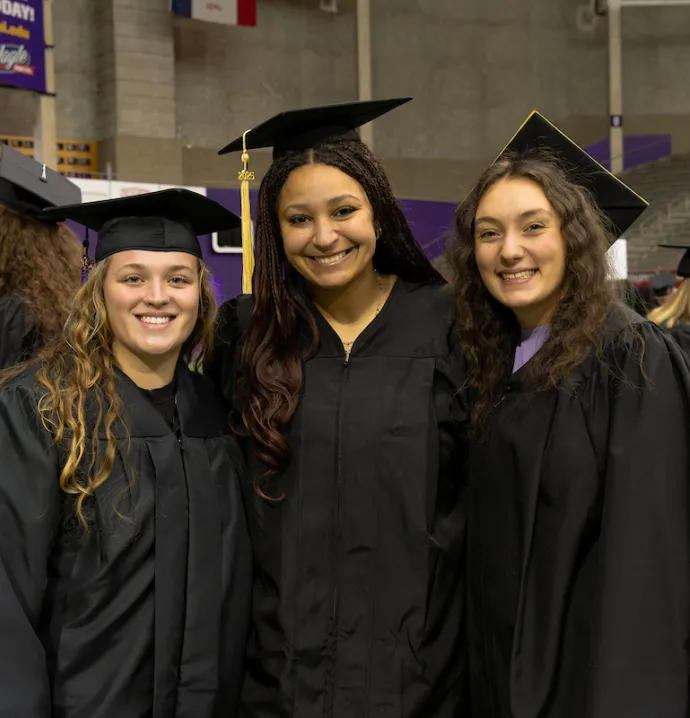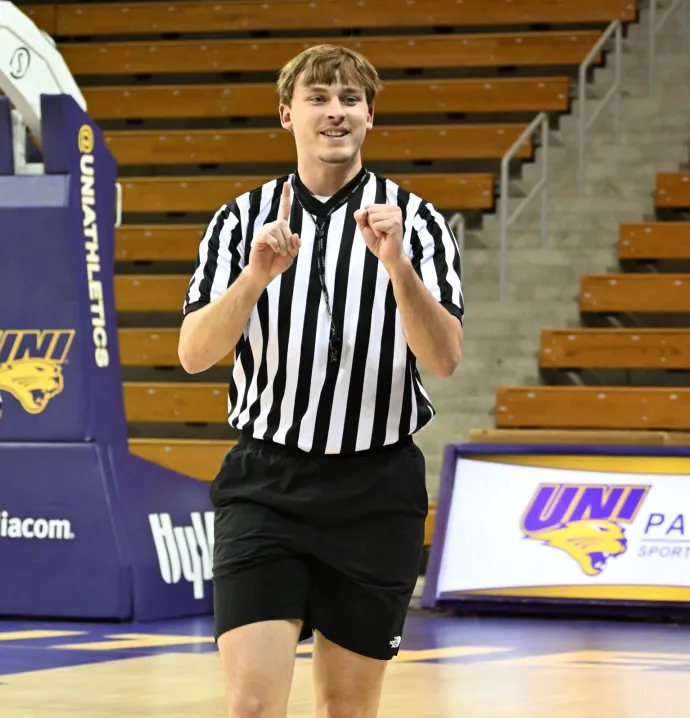Contact tracers help UNI answer the call
Contact tracers help UNI answer the call
Answering the phone has never been more important.
Since the beginning of the semester, UNI contact tracers have been hard at work helping prevent the spread of COVID-19 by notifying students of their required quarantine for those in close contact with someone who tested positive for COVID-19.
It’s not easy. Many students without symptoms do not want to hear the news that they must quarantine for 14 days. They can be upset or difficult to reach. But both contact tracing and limited quarantining are important parts of keeping students on campus and avoiding the widespread quarantines other campuses have had to impose.
To be effective, contact tracers must be able to reach students quickly. And students must be willing to isolate or quarantine for the greater good.
“We're trying to keep our campus safe,” said Shelley O’Connell, executive director of Student Health and Well-being Services. “But there's also a public health aspect here that we would love to have appreciation and respect for, because we're really the public health area on campus, and it's our responsibility and our duty to keep our students and our employees safe.”
Here’s what contact tracers would like students to know:
It’s a process, please be understanding
Once UNI contact tracers receive word from the Student Health Clinic or Black Hawk County Health Department that a student has tested positive, they get to work to determine when symptoms start showing up, when the student was last on campus, and if they were sitting within 6 feet of someone in class. If someone was within 6 feet of an infected student for more than 15 minutes, the contact tracers require that individual to quarantine for 14 days.
Students are provided health education regarding the quarantine process, testing options, health services, resources for both on-campus and off-campus mental health services and the opportunity to have someone reach out from the Office of Student Success and Retention to help students successfully through the academic and co-curricular UNI experience.
Those close contacts must stay in quarantine even if they test negative for COVID-19 because they may develop an infection over that timeframe.
Those students are provided health information about the quarantine process, testing options, health services, mental health resources and the opportunity to have someone from the Office of Student Success & Retention reach out to help the student navigate academic and other issues.
It sounds easy enough on paper, but students can be hard to reach, afraid or upset when they hear the news.
“There's this feeling that we're punishing someone for just going to class or just being around this person,” O’Connell said. “And that's not actually what we're doing. We're trying to limit the amount of spread.”
Get tested, keep your friends safe
O’Connell said the most essential part of keeping campus safe is for students to get tested. The Student Health Center can test 400 students each week, and many times students can schedule a test on the same day they call. The center is open from 8 a.m. to 4:30 p.m., Monday through Friday. Students can also call the 24/7 COVID hotline at 319-273-2100.
While there are rumors that only symptomatic students can be tested, that’s not correct, O’Connell said. Following guidelines from the Iowa Department of Public Health, the Student Health Center may advise students in quarantine to wait until day 4 after potential exposure to avoid a false negative due to a low viral load from a new infection.
Following the rules of isolation and quarantine is also crucially important.
“Staying away from people if you have symptoms is the other thing,” O’Connell said. “If you really want to protect your friends, and you're not feeling good, don't be around them. That will keep them out of quarantine. And you'll do your part to help keep them safe and healthy.”
Pick up the phone, keep your information current
If you see a 515 or 319 number call your phone - it’s important to pick up. O’Connell said students can help the contact tracing process by ensuring their correct phone number is on file in MyUniverse.
If the student doesn’t answer the phone and their voicemail does not include their full name, contract tracers are not able to leave a message or send a text and must instead make repeated calls.
There can also be issues when students are tested through TestIowa. If the student gives an address from outside Black Hawk County, such as their parents’ address, the test result will be sent to that county, which means UNI’s contact tracers will not receive it, O’Connell said.
“That’s why it’s important students use their local address (when getting tested through TestIowa),” O’Connell said.
It works
So far it appears that the Panther community’s united efforts — including wearing masks and contact tracing, combined with recent efforts to rearrange a total of 160 classes to new locations and redesigned seating in over 100 classrooms to further increase physical distancing — is working.
The number of students in both quarantine and isolation has been steadily decreasing. From Aug. 24-30, 83 students were in quarantine and 28 were in isolation. By the week of Sept. 7-13, the latest available data, only 30 students were in quarantine and one was in isolation.
Isolation is a 10-day period of quarantine required when a student tests positive for COVID-19. Research from the CDC found that the duration of infectiousness in most people with COVID-19 is no longer than 10 days after symptoms begin. Quarantine is a 14-day period required of a student who comes in close contact (6 feet or less for more than 15 minutes) with someone who has tested positive. It is important to point out that if a student has close contact and is tested for COVID-19 and tests negative, they will need to remain in quarantine for the 14 days because they may develop COVID-19 during this timeframe.
“Thanks to the tireless efforts of our contact tracers, we’re starting to see some positive results,” O’Connell said. “But we need to keep working together as a campus community to ensure that we stay healthy and on campus.”




